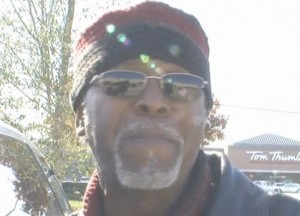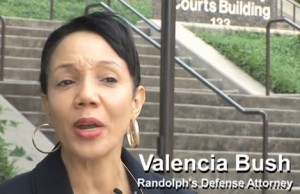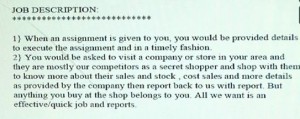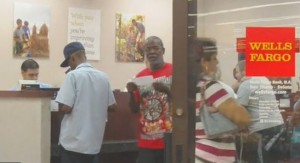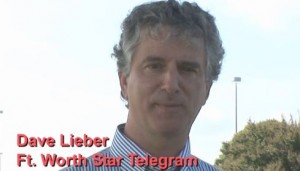For the Fourth of July, 2010, I decided to play watchdog by sharing the story of the man with the noble idea that he can ask for and receive public information from a city government? It’s a true symbol of our freedom, our liberty, our right to know how we are governed, right?
Only when it isn’t.
Meet Dan St. Clair, who is one little piece in the puzzle that is the part of Fort Worth government that doesn’t seem to be working for a lot of people. He asked for public information 16 months ago. He never got it. The city admits it mishandled his request. It wasn’t until this week, with prodding from The Watchdog, that the city even told him that what he wanted is no longer available. (The reason it’s not available is something we’ll discover — and you may not like it.)
Recently, my colleague, Star-Telegram reporter Gene Trainor, reported that Fort Worth is one of the toughest cities from which to retrieve public records. It filed more requests for attorney general rulings than other cities its size. Critics call that a delaying tactic. “I can go to Euless and request the same information; they turn it over. Fort Worth — no,” a defense attorney told Trainor.
St. Clair is quick to agree. The 38-year-old retired Air Force captain has gung-ho ideas about what it means when you say government of the people, by the people, for the people. For the last three years, he has worked as a Fort Worth police officer. And in a move that seems to be from a TV detective show, he began investigating the behavior of a police sergeant who he fears may have railroaded a colleague off the force unfairly.
It takes guts to request records from your own employer. Here, in words worthy of the Fourth of July, is St. Clair’s reason:
“I don’t see it as a fight with the entire department. I see it as a fight with what I’ve seen is a very corrupt element of the department. If I’m trying to uphold the law and the lawyers for us are blatantly breaking the law, to me, there’s no place for that.
“When I was in the military, I didn’t let things like that slide. If someone was doing something wrong, I did what I could to take care of it. I want to take ownership of the job I have, which I believe is a public service. If I see something like this, I have to do something.”
In February 2009, St. Clair asked for e-mails and other computer terminal messages sent by a police sergeant while she was on duty. He believes that the sergeant sent messages stating her intention to remove the other officer from the force.
After St. Clair filed his request, the city missed deadlines for informing him about the status of the records. After agreeing to pay $71 for the records, he didn’t hear from the city for seven months.
The city told him that parts of the records had to be edited to delete confidential information. Eventually, he received three sets of squad car messages, the kind police send from computers in their cars, but they were almost all police-related checks of license plates and other data. There were few personal e-mails.
St. Clair knows that there were many more because he received some of them originally, he says.
Now the matter is before the Texas attorney general. The city acknowledges the screw-up. Assistant City Attorney Patrick Phillips wrote to the attorney general last week that “the city acknowledges that it has failed to comply with the time periods prescribed … in seeking a ruling from your office and recognizes that this failure results in the presumption that the information is public.”
But.
But the city has another argument to make. Phillips told me the city doesn’t have the information anymore. Why? E-mails and squad car messages are kept on the city’s computer servers for “not that long.”
Once e-mails are deleted from the system and removed from the servers, “we are not required to go to backup systems and backup tapes. … The attorney general’s office considers anything on a backup tape, that it’s no longer public information. … That’s a distinction made at the attorney general’s office, and we’re bound to follow.”
He may be right. In two open-records rulings for other government bodies, released in April, the attorney general’s office says that because e-mails are sometimes deleted from computers, “the data may be overwritten and permanently removed.”
To use backup tapes to retrieve old information, the attorney general’s office says, “the city would be required to restore data from the city’s back-up tapes onto a separate server. … Therefore, we find that any of the requested information that existed only in back-up tapes at the time of the request was no longer being ‘maintained’ by the city at the time of the request, and is not public information subject to disclosure.”
Read the two April 2010 opinions here and here.
Ouch. The Watchdog doesn’t like that. Did the city miss deadlines so that the information would be gone? The Library of Congress can accept an archive of every public tweet on Twitter since 2006, so electronic storage of records by governments should not be a problem.
St. Clair wants copies of messages that he believes he is entitled to have. He will apparently never see them, but until now, nobody bothered to tell him why.
“It’s not our ideal,” Phillips said. “We know the process is ugly. … We would like it to be better.”
Happy Fourth.
# # #
Dave Lieber, The Watchdog columnist for The Fort Worth Star-Telegram, is the founder of Watchdog Nation. The new 2010 edition of his book, Dave Lieber’s Watchdog Nation: Bite Back When Businesses and Scammers Do You Wrong, is out. Revised and expanded, the book won two national book awards in 2009 for social change. Twitter @DaveLieber





